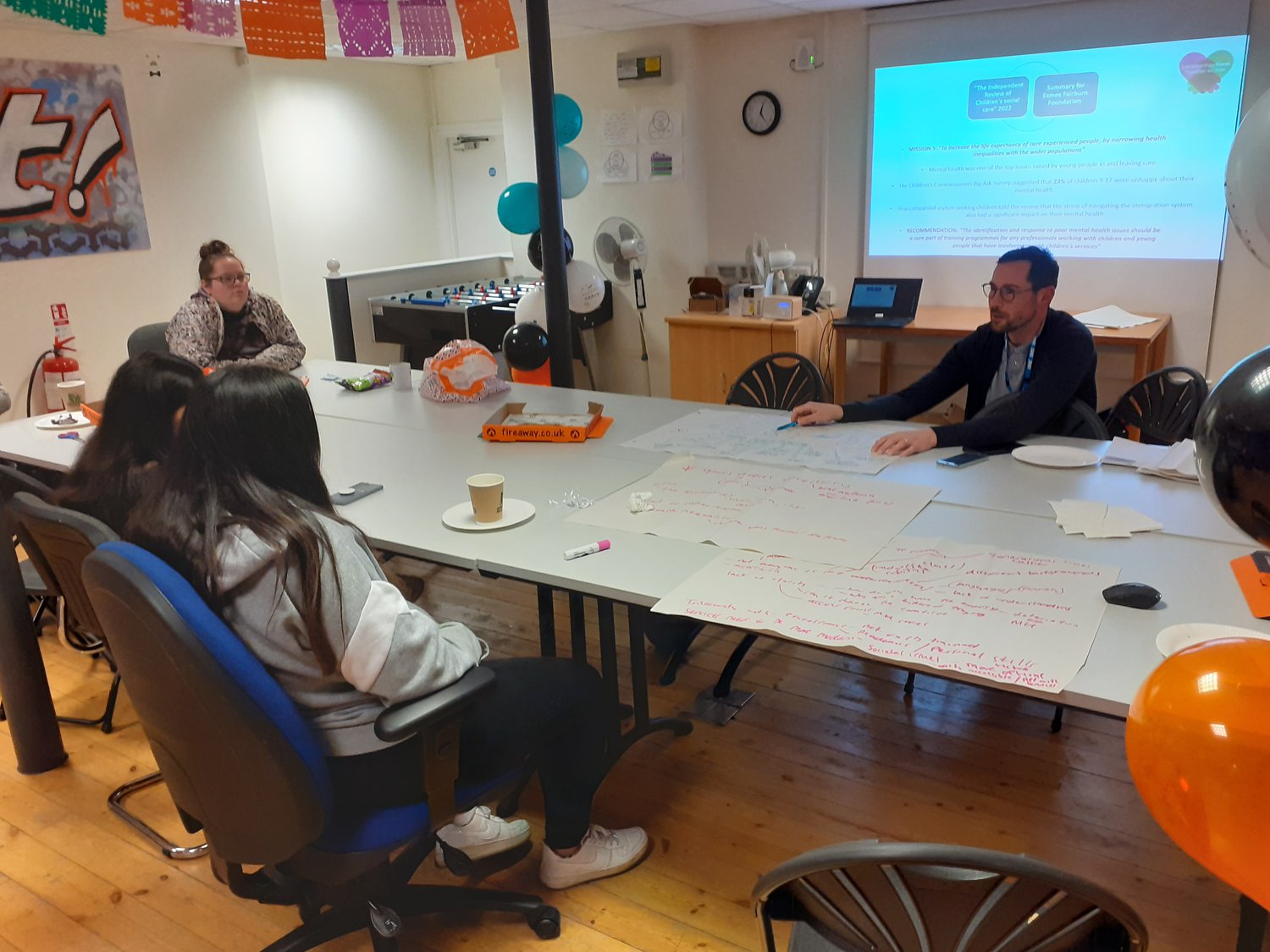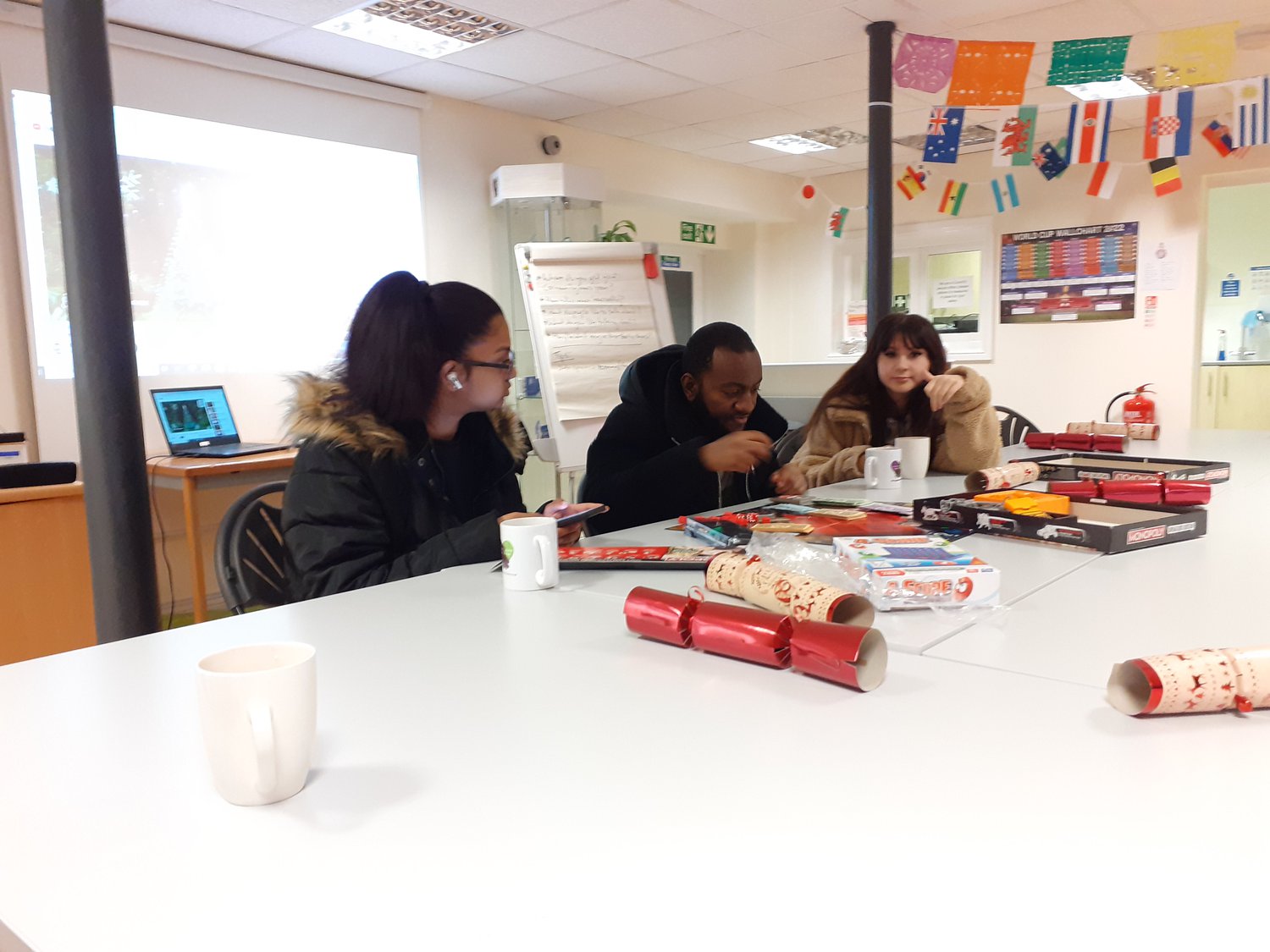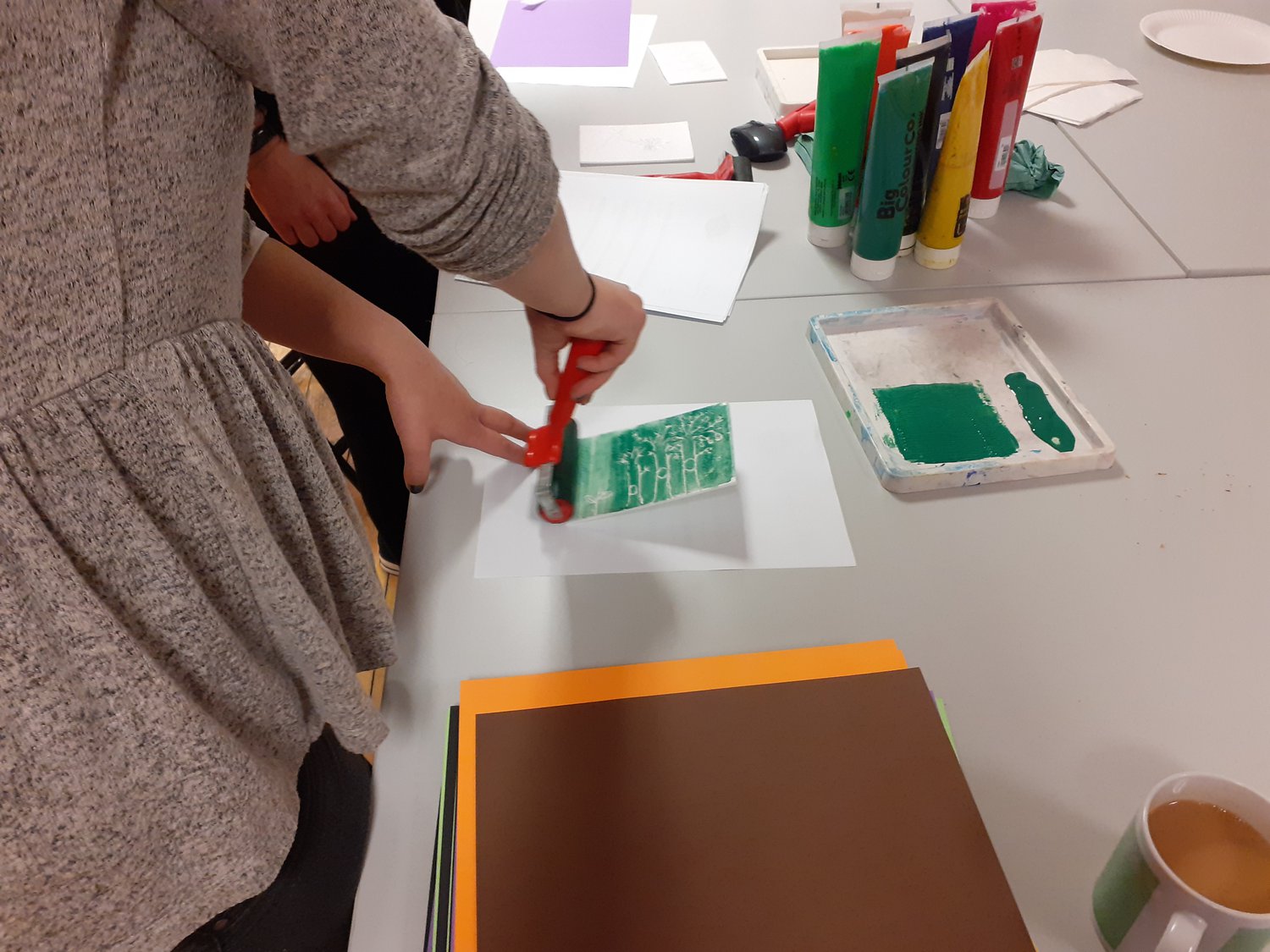Introduction
As part of the Joining Up Joining In project funded from the Blagrave Trust we conducted a survey in partnership with our care experienced peer researchers. So far on the project, four young people have received training from Learning and Work Institute to become peer researchers and explore the issues that local care experienced young people face. This survey was their first research activity, which the group wanted to carry out given the momentum of local authorities across the country voting to recognise care experience as a protected characteristic. The young people designed the survey, promoted it to their networks, analysed the findings and wrote the sections of this report, which presents the findings of the survey.



Background
As we are aware, care experienced young people are one of the most vulnerable groups of people across our society. Care experienced young people will often encounter disproportionately negative outcomes relating to a range of factors including education, employment, and their exposure to the criminal justice system. Most recently it has been recognised that around 50% of the prison population aged under 21 have spent some time in the care system. In 2018-19 only 13% of pupils who were looked after continuously for 12 months, or more entered higher education compared to 43% of all other pupils. In 2019, the Department for Education showed that by the age of 19-21 years old, 38% care-experienced young people are not in education, employment, or training in comparison to 11.6% of all other young people. The recent independent review of children’s social care recognised the importance of protecting care experienced young people under the Equality Act 2010, thus making care experience a protected characteristic. The idea around a change in policy has created momentum across the care sector, backed by Terry Galloway’s national campaign for local authorities to adopt the policy. As of today, there are a total of 57 local authorities who have agreed to the change and the aim of our peer researchers is for this number to continue to grow, particularly locally across Leicester, Leicestershire and Rutland who have yet to agree to this change.
Findings
The findings of the survey are presented under the key themes identified in the responses: support for “care experience” being a protected characteristic, personal experiences, stigma and discrimination, the impact of being in care, and lack of support.
There is strong support for care experience being a protected characteristic.
Of the 32 responses received to the survey, 68.8% strongly agreed being care experienced should be a protected characteristic, 25% agreed, 3.1% were neutral and 3.1% believed that being care experienced shouldn’t be a protected characteristic. A persistent lack of support and understanding of care experienced young people underpinned many people’s opinions. There was also clear recognition of how we could celebrate the success of care experienced young people more evidently. Thus, having care experience as a protected characteristic could help to improve and achieve further positive outcomes.
Personal experiences
Respondents to the survey felt that there is often a belief that each care experienced young person has had the same or overlapping experiences within the system, this is almost always not the case. This puts those leaving the system in a difficult position of having to identify and find solutions for the difficulties they may have developed because of childhood trauma and being within the care system, as there is a “one size fits all” approach to support currently. In making care experience a protected characteristic, it must recognise that each person leaving the corporate parenting system is an individual and should be offered support as such. This would remove some barriers that young people face when entering workspaces and becoming independent. This would place more responsibility on leaving care services to make the transition process smoothing helping care leavers to find stable employment after care.
“It leaves young people/leavers in a unique and typically more damaging position mentally,
financially and in terms of their education, to list some,”Participant
Stigma & Discrimination
The survey findings indicated that care experienced young people do not want to be stigmatised as it is not the person’s fault that they ended up in care; these are factors that are completely out of their control. Having care experience as a protected characteristic is important as it allows individuals to be aware of the disadvantages and experiences young people in care face, which may therefore raise more awareness and allow for more opportunities to arise for care experienced young people, with less stigma and discrimination directed towards them. The advantage of a protected characteristic would allow the opportunity for care experienced people to have the option to make others aware that they are care experienced, in the same way that disability, sex, age and other protected characteristics do.
“It’s not the persons fault that they ended up in care. They have likely overcome many
challenges, and more than the average person so should be protected”.Participant
Impact of being in care relating to trauma and the experience of being marginalised
This theme is important as it highlights the systemic difficulties care experienced young people face by simply being part of that demographic. Respondents felt that this subsequently ‘writes off’ the individual and allows professionals to form assumptions and hinder opportunities for these young people without accepting them for their individual personalities and attributes. A typical scenario may be that a care-experienced young person applies for a job and is accepted, the trauma they have experienced leaves them with an anxiety disorder. This leads to the employer doubting their abilities (quite often due to stigma), subsequently, the young person loses out on this job opportunity. It’s important to notice and acknowledge the commonality of these scenarios that care experienced young people encounter, because of belonging to a marginalised group. By recognising these disadvantages, systems can begin to understand the experiences of young people, therefore working on creating and implementing strategies to target these disadvantages.
It is important to understand that all experiences are individualistic and care experienced young people’s views on this theme may differ. A key recommendation could be for all systems and organisations that involve young people for example health, education, social care, law enforcement, privately-owned organisations to receive training that educates them to understand the specific experiences and needs of care experienced young people. This would benefit young people by creating a wider understanding by tackling stereotypes, in turn potentially creating more opportunities.
“This group of young people face systemic exclusion and discrimination in all walks of life.”Participant
Lack of support
The findings highlight that care experienced young people have a limited support network and will often struggle to discover opportunities that aid them in advancing from the struggles in their life. It is important for care experienced young people to have a trusted support network purpose-built for them and their needs to provide stability and a strong foundation for future success in their lives. Care experienced young people are often susceptible to feelings of loneliness and vulnerability due to having a limited network to turn to for help. It is important for young people to feel supported in achieving their dreams and for this support to come from people that they have good relationships with and not just those who are available for the young person.
This can be achieved by having continued discussions with the young person to maintain a good idea of interests and potential career paths. This could help to provide role models or individuals who have shared interests providing the foundations for bonds. It may also be beneficial for young people to engage in therapy of some sort to aid them in working through childhood trauma foster allowing young people to trust more easily, rather than presenting a barrier to those often trying to help.
“Care leavers have additional vulnerabilities, having to live independently at a young age
and often have a limited support network”.Participant



Our asks
Our key asks resulting from the findings of our survey is for:
- Leicester City Council, Leicestershire County Council and Rutland council to recognise “care experienced” as a protected characteristic.
Underpinning this are a set of actions and changes the local authorities should put in place to improve support for care experienced young people in Leicester and Leicestershire:
Boosting success:
- Create a peer mentoring system using positive role models who have left the care system with the aim of inspiring and encouraging care experienced young people to go on to future success.
- Increase care experienced young people’s engagement with hobbies and societal groups to build confidence and form peer networks
Employment:
- Improve connections with local businesses to provide increased volunteering or working opportunities for care experienced young people to earn experience of working life.
- Source further paid apprenticeships ring-fenced for care experienced young people across a range of sectors.
Raised awareness and understanding of care experienced young people:
- Further engage local businesses and the public sector to build on their understanding and knowledge of support needed for care experienced young people moving into employment.
- Provide more extensive training opportunities to staff within the education system who might be directly responsible for care experienced young people.
Peer researchers on Joining Up, Joining In will be working with decision makers across the city and county to share the findings of this research and ask for both local authorities to action our ask.
For more information about Leicestershire Cares and our work, visit www.leicestershirecares.co.uk or search @LeicsCares on X or Instagram or contact myself directly aidan@leicestershirecares.co.uk
Powering Up Project (Care experience) | Leicestershire Cares
Joining Up Joining In | Leicestershire Cares
Joining Up Joining In | Leicestershire Cares
Leaving Care Update Q1 2023/24 | Leicestershire Cares
This piece was originally published at https://www.leicestershirecares.co.uk/about-charity/news-events-/should-care-experience-be-protected-characteristic/ and is reprinted here with permission from Leicestershire Cares

